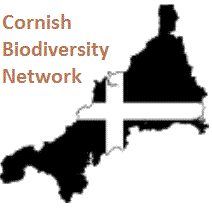Cornish Biodiversity Network - Supporting Wildlife Recording


The descriptive text, below the map, is from the Cornish Red Data Book (2009). The map on this web page depicts the organisms distribution and shows the records made pre-2000 and those made since.

Range & Status
Before 1999 Common and Soprano Pipistrelle bats, which are difficult to tell apart, were all classed as a single species, the Common Pipistrelle. This makes comparison with data prior to 1999 difficult to interpret. This species is found over most of Europe and although common throughout Britain including Cornwall there has been a substantial decline (Stebbings, 1988). The present population estimate is 2,000,000 (Harris et al ., 1995) although this figure includes the Cryptic Soprano Pipistrelle species. The NBMP report this species as increasing (NBMP, 2008).
Regional Distribution
Found throughout Cornwall including the Isles of Scilly. Was recorded in 81 1km
squares (before identification of two separate pipistrelle species), now 184 1km squares (undifferentiated pipistrelle species) or 11 1km squares confirmed as Common Pipistrelle. The Common Pipistrelle is likely to be more widespread in Cornwall than the Soprano Pipistrelle.
Habitat & Ecology
Found in most habitats, including urban, except in very exposed areas. It catches and eats small insects in flight. In summer it roosts in crevices around buildings, often in large numbers and moves to similar but cooler sites and trees in winter. Seldom goes far underground. Emerges early dusk.
Threats
See Introduction. Disturbance in roosts.
Conservation
Extensive legal protection detailed in Introduction. Not at risk of extinction worldwide. (IUCN status, 2001). A Local BAP species.
I.J. Bennallick, S. Board, C.N. French, P.A. Gainey, C. Neil, R. Parslow, A. Spalding and P.E. Tompsett. eds. 2009. Red Data Book for Cornwall and the Isles of Scilly. 2nd Edition.Croceago Press.
The Cornish Red Data Book Project was led by the Cornwall and Isles of Scilly Federation for Biological Recorders (CISFBR). The full text and species accounts (minus the maps) are available on the CISFBR website.